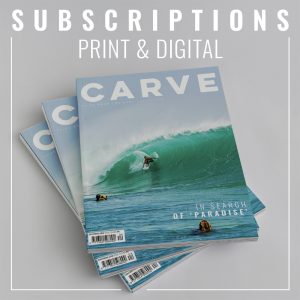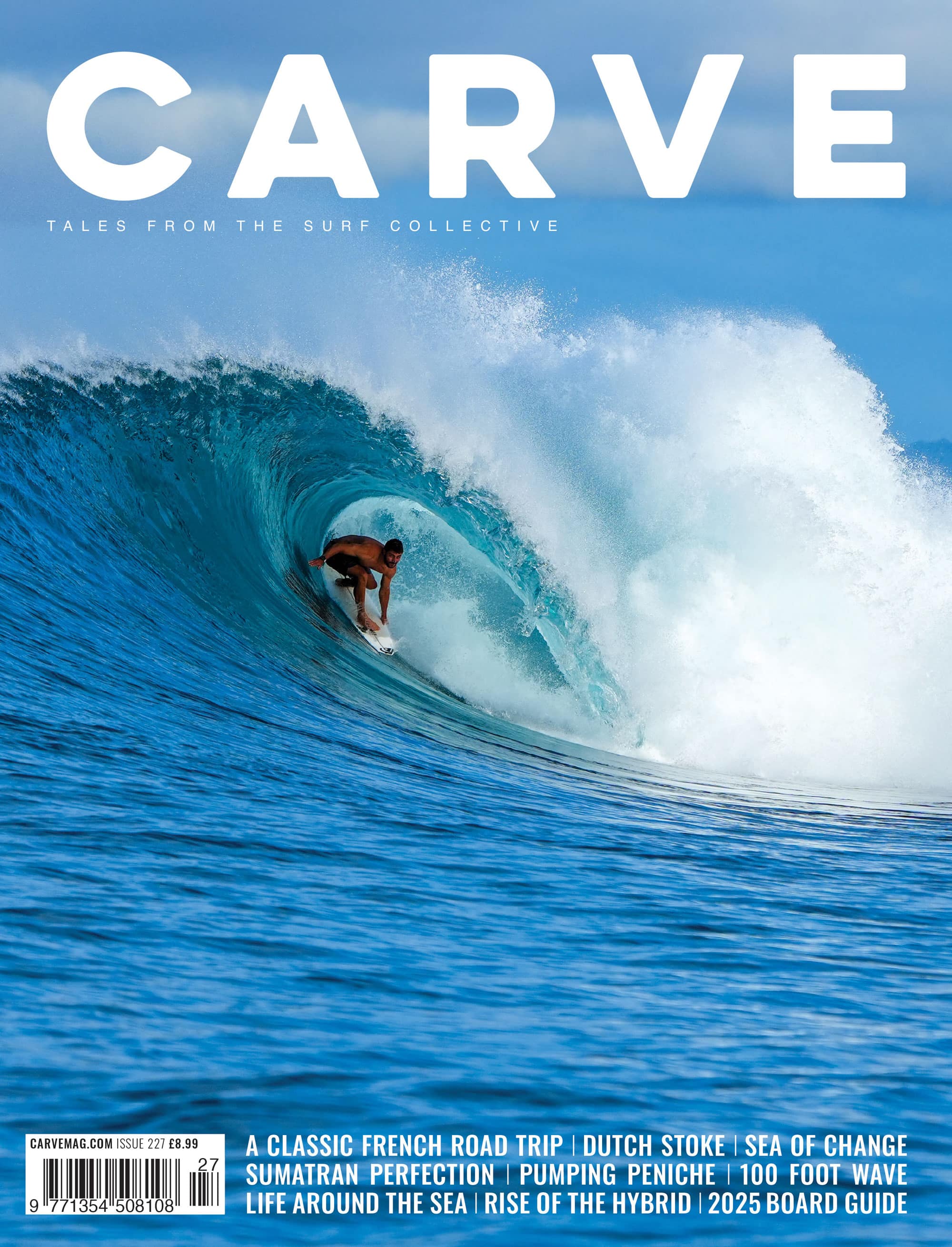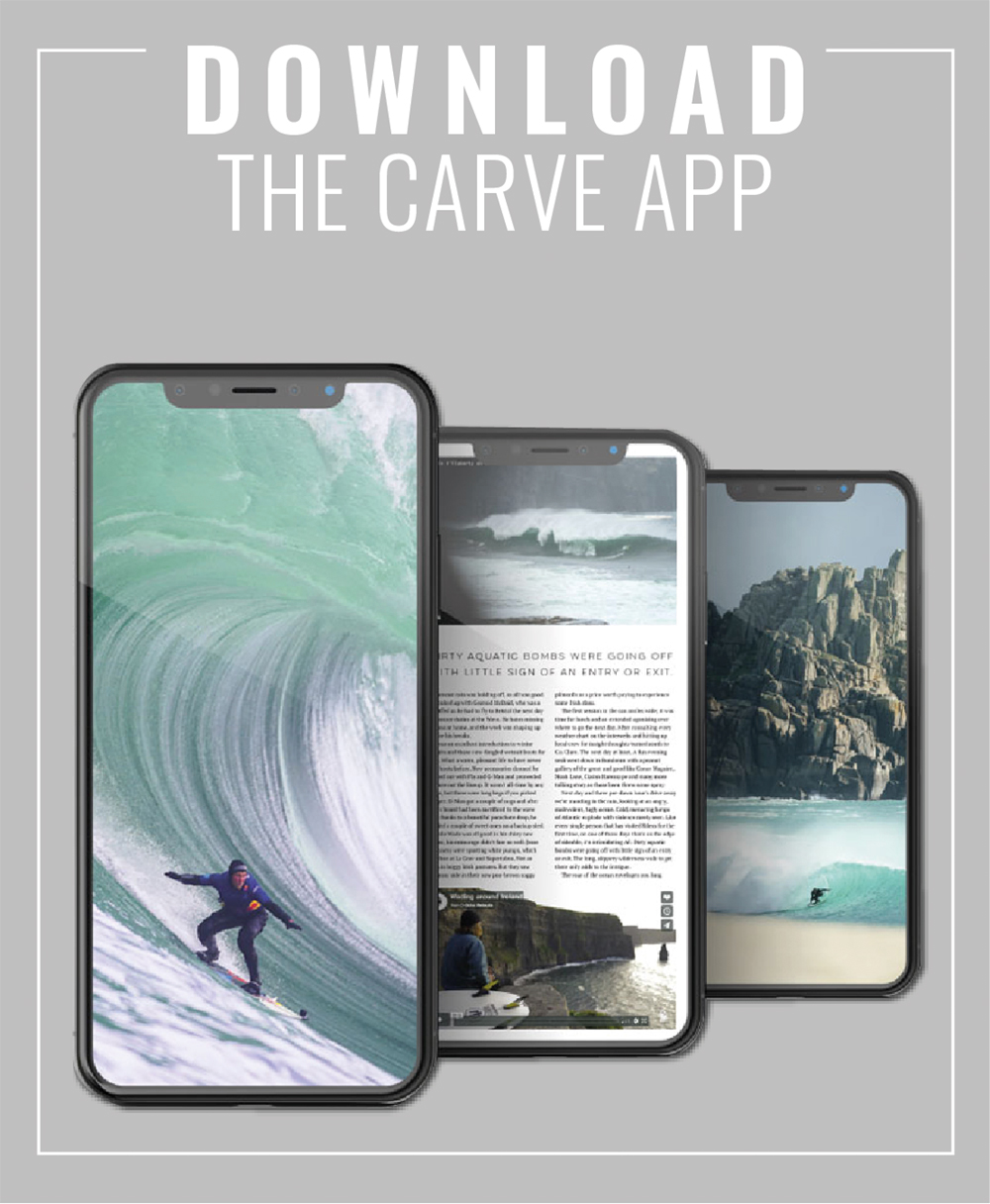Riptide is the latest documentary offering from South Wales-based production company, Fine Rolling Media. Directed by Kristian Kane and Lewis Carter, Riptide tells the story of Welsh surfer Mark ‘Jock’ Jones, as his surf-dominated life is upended by a catastrophic Myeloma blood cancer diagnosis.
The film follows Jock over a five-year period as he’s forced into isolation, away from his surfing obsession and his family. Jock channels the energy that would usually be focused on surfing into a mega ‘virtual paddle’ challenge to raise money for charity and send ripples of hope into a community suffering with their own issues.
The result is a film about compassion, the power of surfing on mental and physical well-being, and finding out what truly matters in life.
Riptide has recently held two sold-out premiere events and is currently under consideration from major TV outlets and streamers. We caught up with the film’s directors Kris and Lewis to find out how what started as a short surf film ended up as an emotional rollercoaster feature film, and then spoke to Jock about how the making of the film helped him and what he thinks its legacy could be.
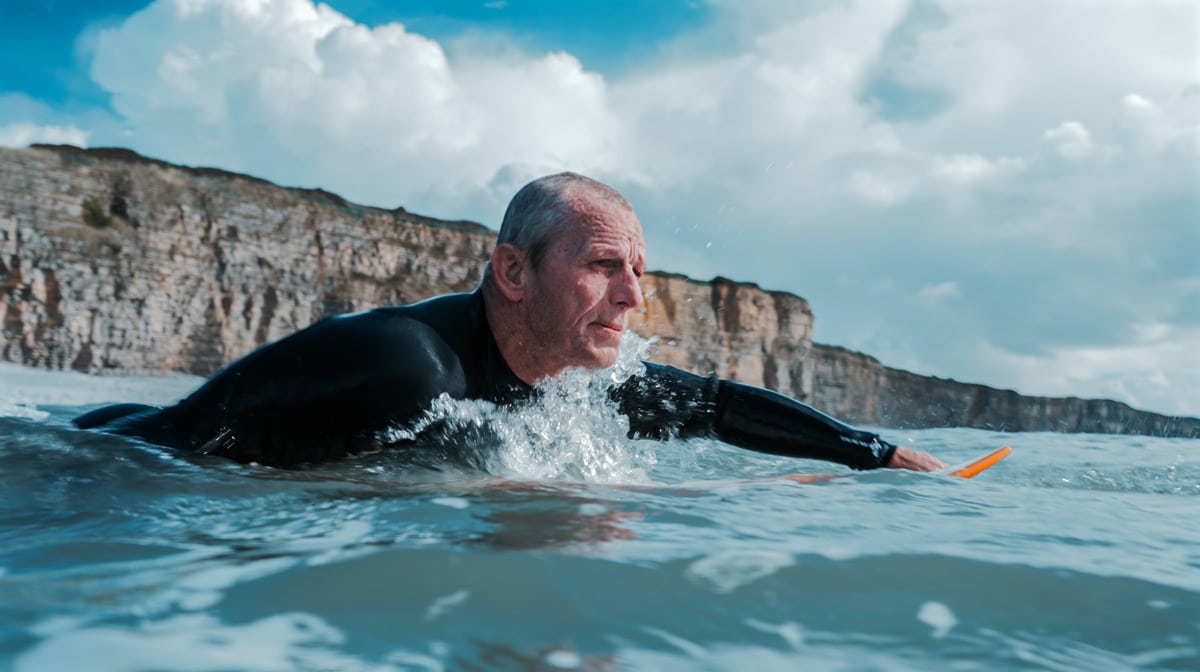
Carve: Let’s start there. How did this journey begin for you guys, and did you expect it to take five years to make?
Kris: The short answer is no. I knew Jock—he was my P.E. teacher in school back when I was a right little toad. So, we didn’t get on, to be honest. But over the years I’d see Jock in the sea, and I always respected him as a surfer. So, when I saw that he was posting about his diagnosis and his charity challenge, I said to Lew, we need to reach out and try and boost his story somehow.
Lewis: I think it took us all of five minutes to realise we had the makings of a documentary on our hands. As most people know, going through cancer and everything that comes with that in terms of chemo and stem-cell transplants… it’s not normal to be doing a gruelling virtual paddle of the entire coastline in your downtime. But, as the film reveals, Jock is not normal. And that’s what we love about him.
Carve: So, what is the virtual paddle? And that’s not the only challenge he took on over the five years, is it?
Kris: It all started when he went in for a stem cell transplant—which involves total isolation. Kinda like in COVID, but ten times worse as you’re stuck in a poky hospital
room. Anyway, he took in this little hand peddle bike thing to keep himself occupied and one of the nurses suggested he do a challenge for charity.
Lewis: Yeah, the hand bike looks like someone’s chopped the peddles off a bike and stolen the rest—it’s a funny-looking thing. Kinda like something you’d see being flogged on a late-night TV shopping channel. But it was the perfect device to allow Jock to track a ‘virtual paddle’ of the Welsh coastline. He documented his progress online and the response from the surf community was mind-blowing.
Kris: And from there the challenges just escalated. Without spoiling too much in the film, he even ends up running the London marathon while on aggressive chemo.
Lewis: What started out as a way of blocking out the thought of cancer, the thought of not surfing, and raising a bit of money for charity escalated into a real online movement. He describes it as ‘sweating the chemo out.’ And in the film, you can literally see him battling the cancer at times while on this paddle bike. It’s like he’s physically pushing against it.
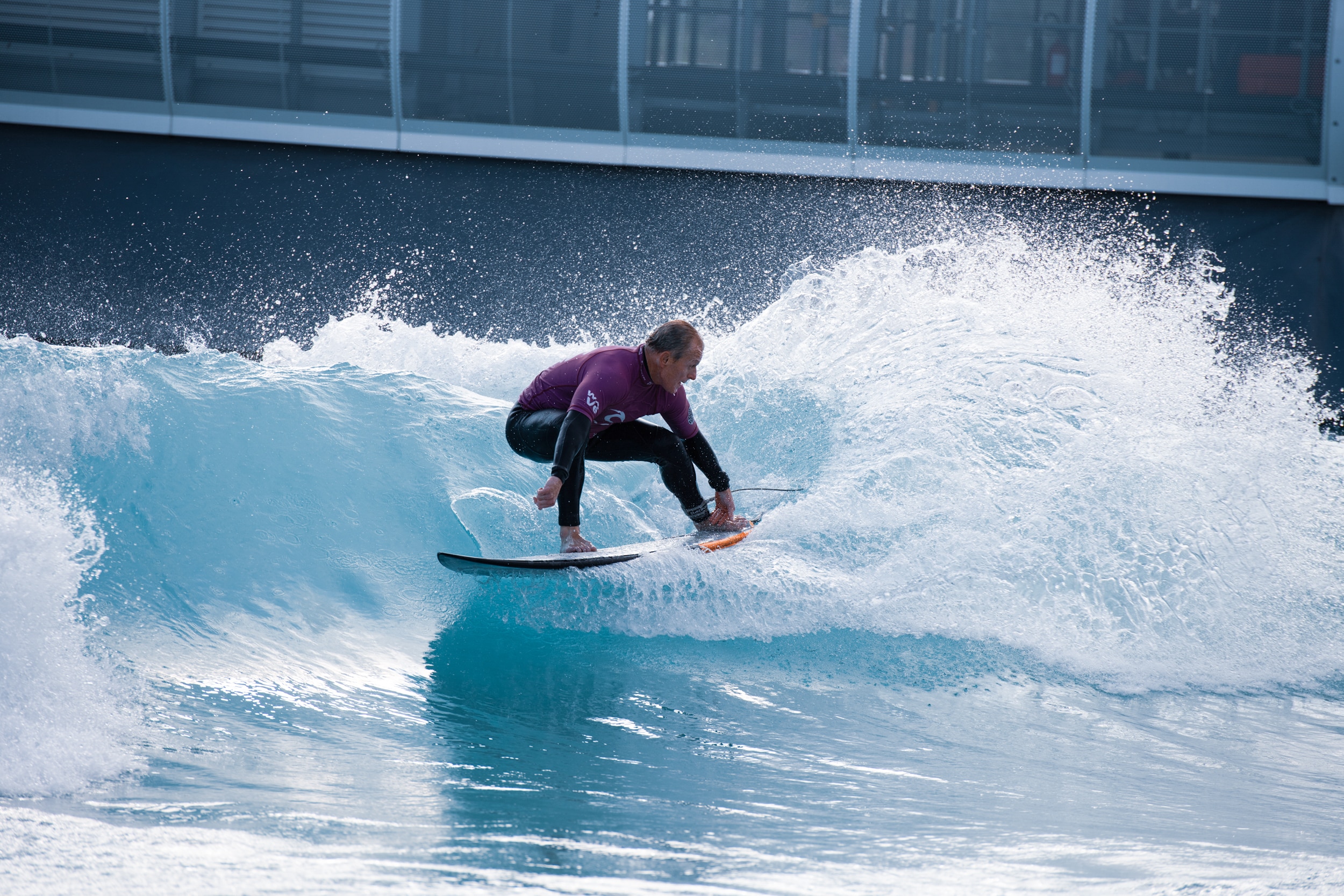
Carve: You mention that he was, obviously, not able to surf through large parts of his ordeal, that must have been agonising for someone as obsessed with surfing as Jock is?
Kris: At the beginning of the film, you can clearly see it’s affecting him. Even just not being able to be in the sea is a real struggle for him. His connection to water and the ocean is probably deeper than we’re able to articulate. It goes beyond surfing. Surfing is just the means of expressing it.
Lewis: He describes the sea as his ‘comfort blanket’. He literally pulls the water over him, and it allows him to feel safe and supported when the cancer is getting on top of him. As filmmakers, it was a dream of metaphor to be able to play with visually and narratively. Kris is right when he says, it’s hard to describe just how much the sea means to him. But when you see him surfing in pivotal moments in the film… it expresses everything we can’t put into words. It’s dreamlike in a way.
Carve: That’s a good way of putting it, and you can tell when watching the film that a lot of thought was put into how surfing is portrayed.
Kris: Absolutely, you can’t make a film about the power of surfing and not get the surfing right. We used a lot of cinematography tricks to make the surfing relevant to the Jock’s emotional journey. We used underwater housing to get into that feeling of the sea as a comfort blanket, and as a surfer myself, I just knew exactly how to capture these moments in ways that would make sense to surfers.
Lewis: We love the surfing scenes. The cinematography was a massive part, but we also spent hours talking to Jock about what surfing means to him to try and pin the surfing moments in the film to key moments of his journey. It took years to get right, but the end result was worth it.
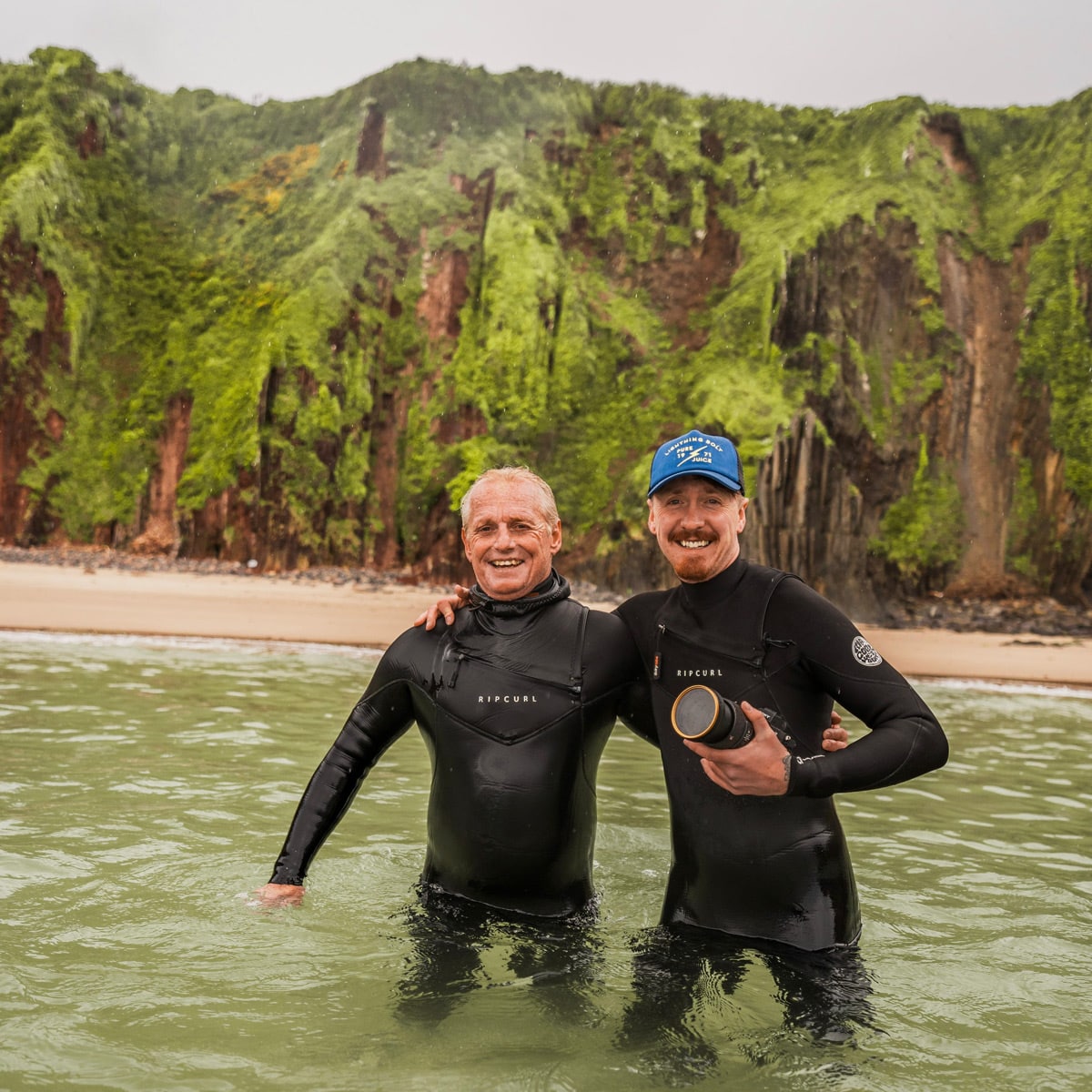
Carve: The scenes at The Wave are incredible also. Did you always plan to film those pivotal scenes there?
Kris: We took Jock to The Wave early in the process. We filmed a bit, but it was more about giving him a great day out. When we learned more about the ethos behind The Wave and spoke to the founder, Nick Hounsfield, we knew we needed a big scene at The Wave and to interview Nick for the film about beliefs about the benefits of Blue Health.
Lewis: Nick’s philosophy on the positive effects of water and natural spaces on both physical and mental health overlapped massively with Jock’s description of how the water had helped him over the years. Nick spoke after the last cinema screening we had in Cardiff. It was incredible to hear his story and how it complimented Jock’s. We also learned that both of their sons are currently studying in Swansea Uni. Small world.
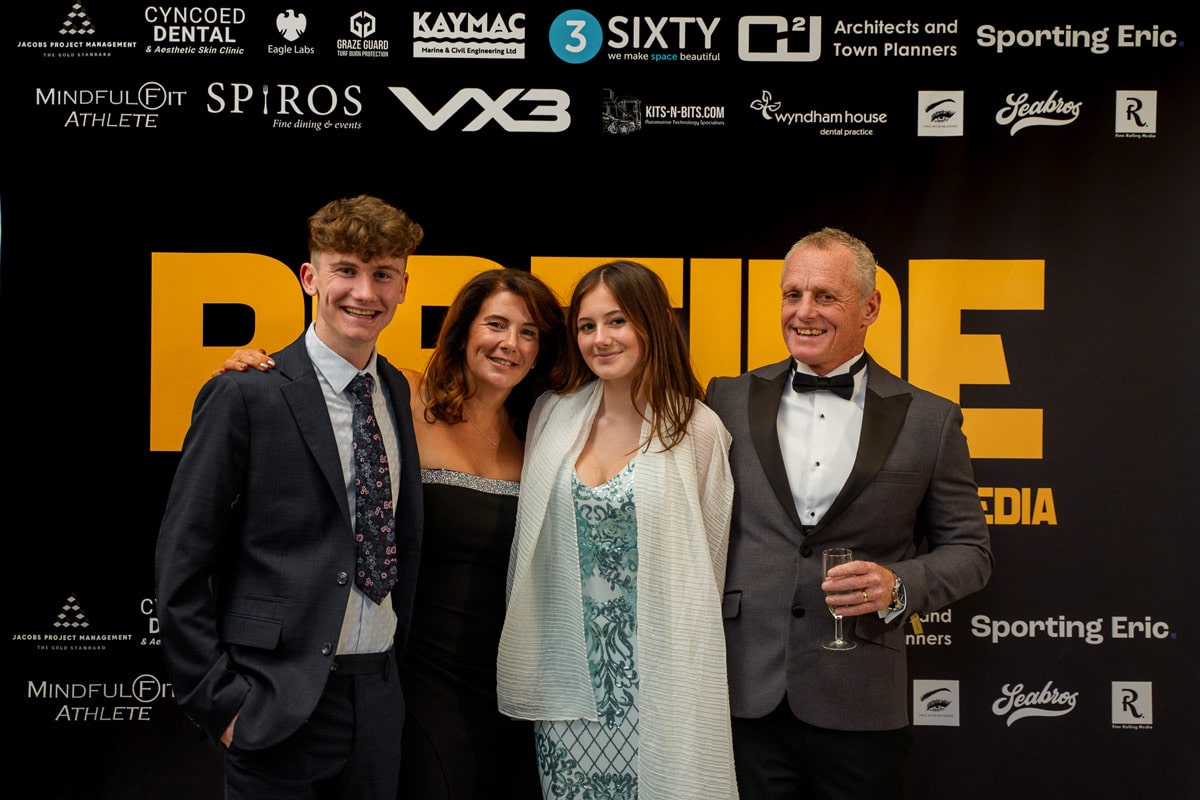
Carve: Jock’s family play a key role in the story, don’t they?
Kris: The relationship he has with his wife and kids was just as important to get right as the surfing. Jock will tell you himself, back in the day surfing was often a distraction from family and a means of escape, but after going through the cancer journey it became something far more positive.
Lewis: It’s a real character arc and one we were keen to articulate to the best of our ability. Surfing goes from being a means of escapism to a means of connecting with family and a time to reflect on just what is important and to understand why and who he’s battling to stay alive for.
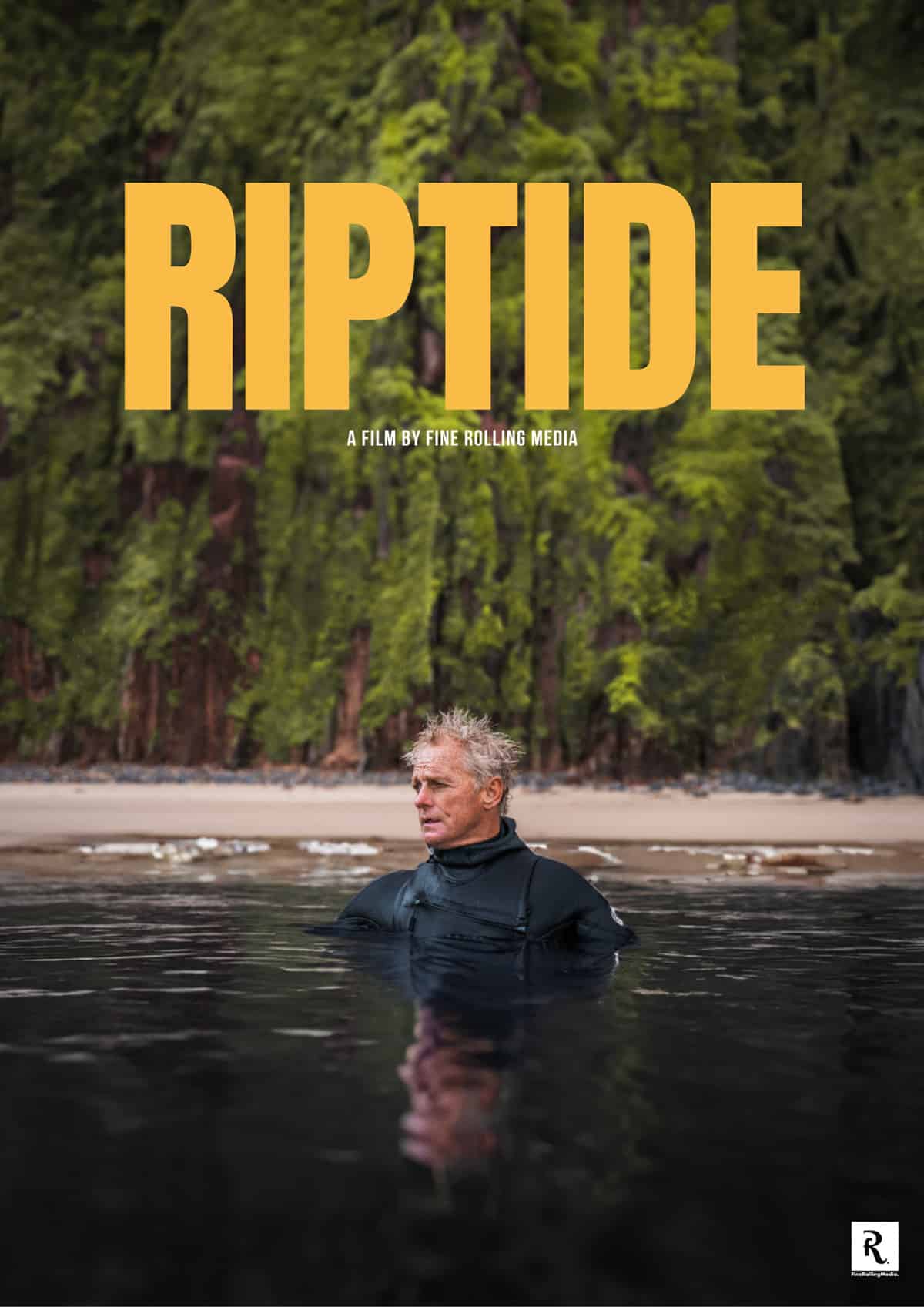
Carve: The audience reactions from the two screenings have been incredible. Emotional is too weak a word, really. How do you plan to get this in front of more people?
Kris: The response has been crazy. We’re surprised, but in some ways not surprised to see just how many people connect with Jock’s story after spending five years making this with him. The challenge now is getting the story out to wider audiences. We made this off our own back and it’s not always easy to go from successful screenings to getting things picked up by a TV channel, but we’re happy to say that we’ve had multiple people reach out to us after seeing the audience response and the impact online.
Lewis: We feel that it can have a huge reach given a little help. It’s a film that obviously appeals to surfers, but also to anyone who’s been touched by cancer, or just enjoys a really in-depth human-interest story. It’s not a sad cancer film. The film really does reflect Jock’s personality. It’s funny, it’s honest, it’s moving, and we’d love to talk to anyone who thinks they can help us get it out there to the masses.
The lads are look for distribution partners to get the message out to a wider audience. If you are interested email Kristian here | Fine Rolling Media



